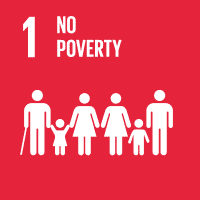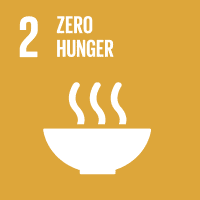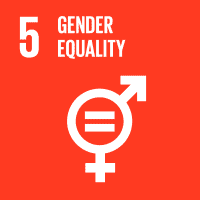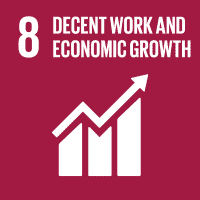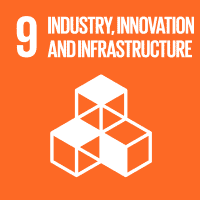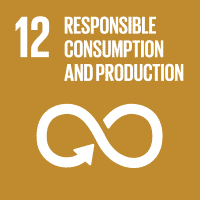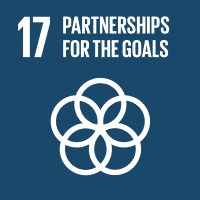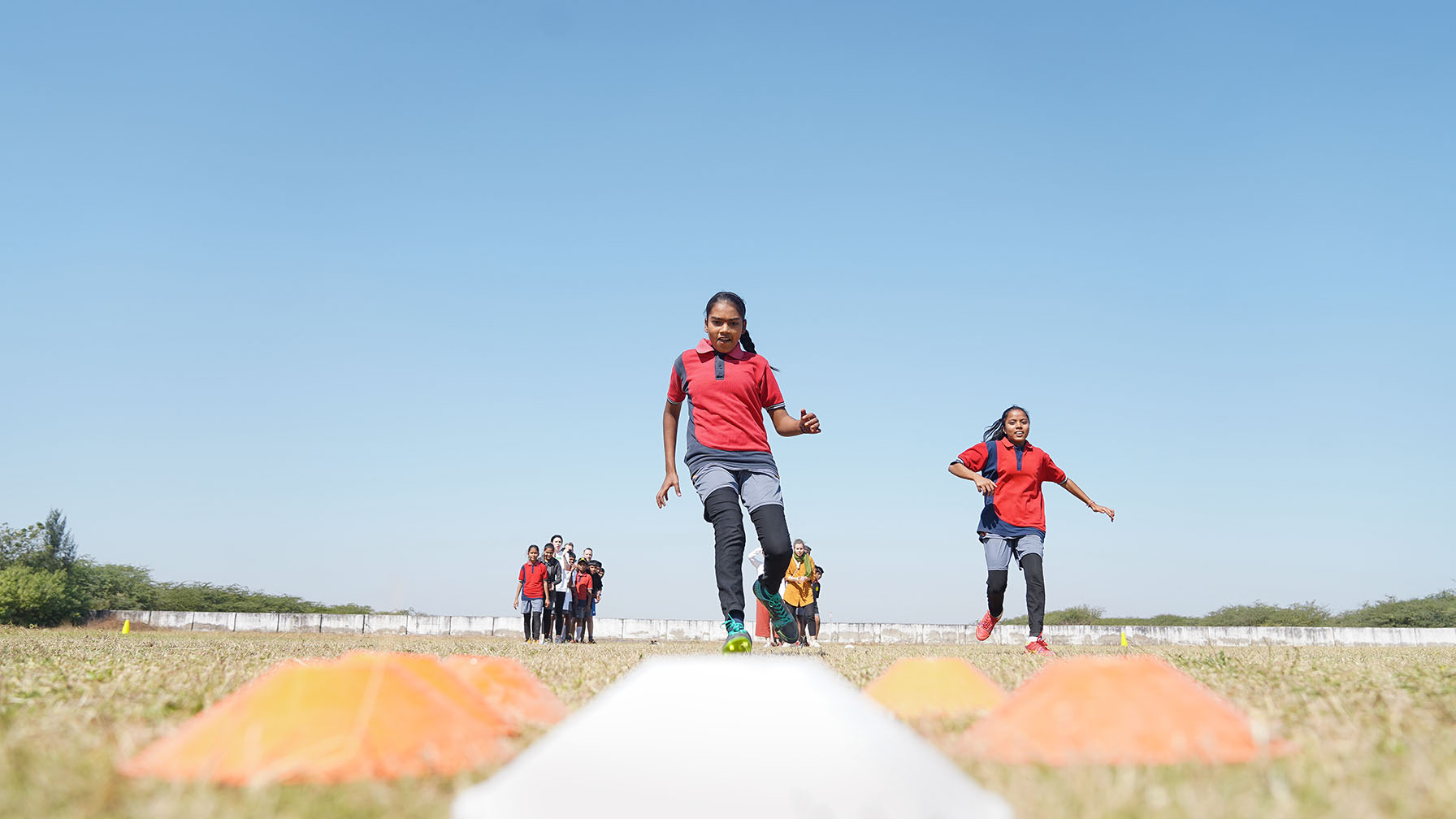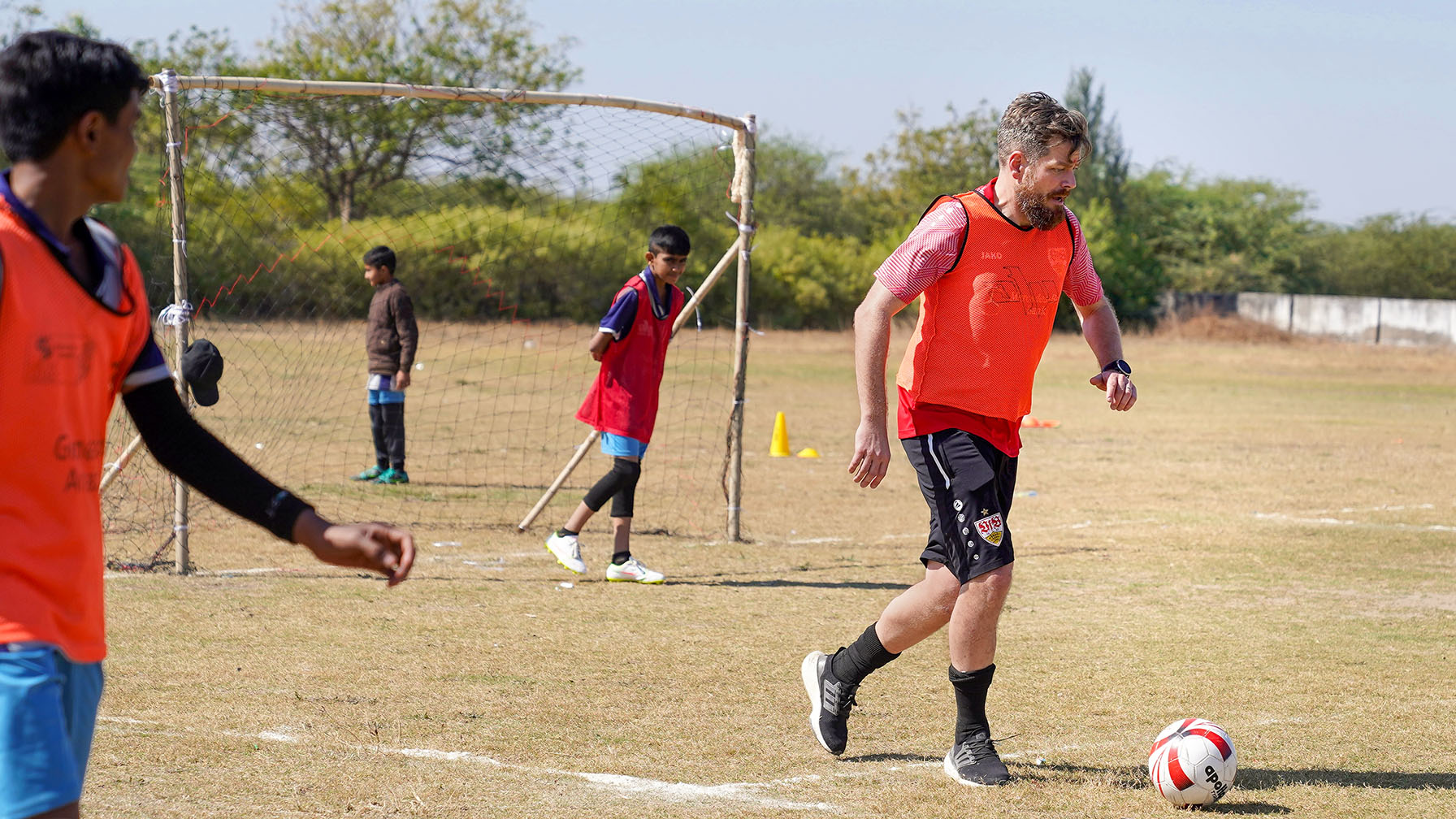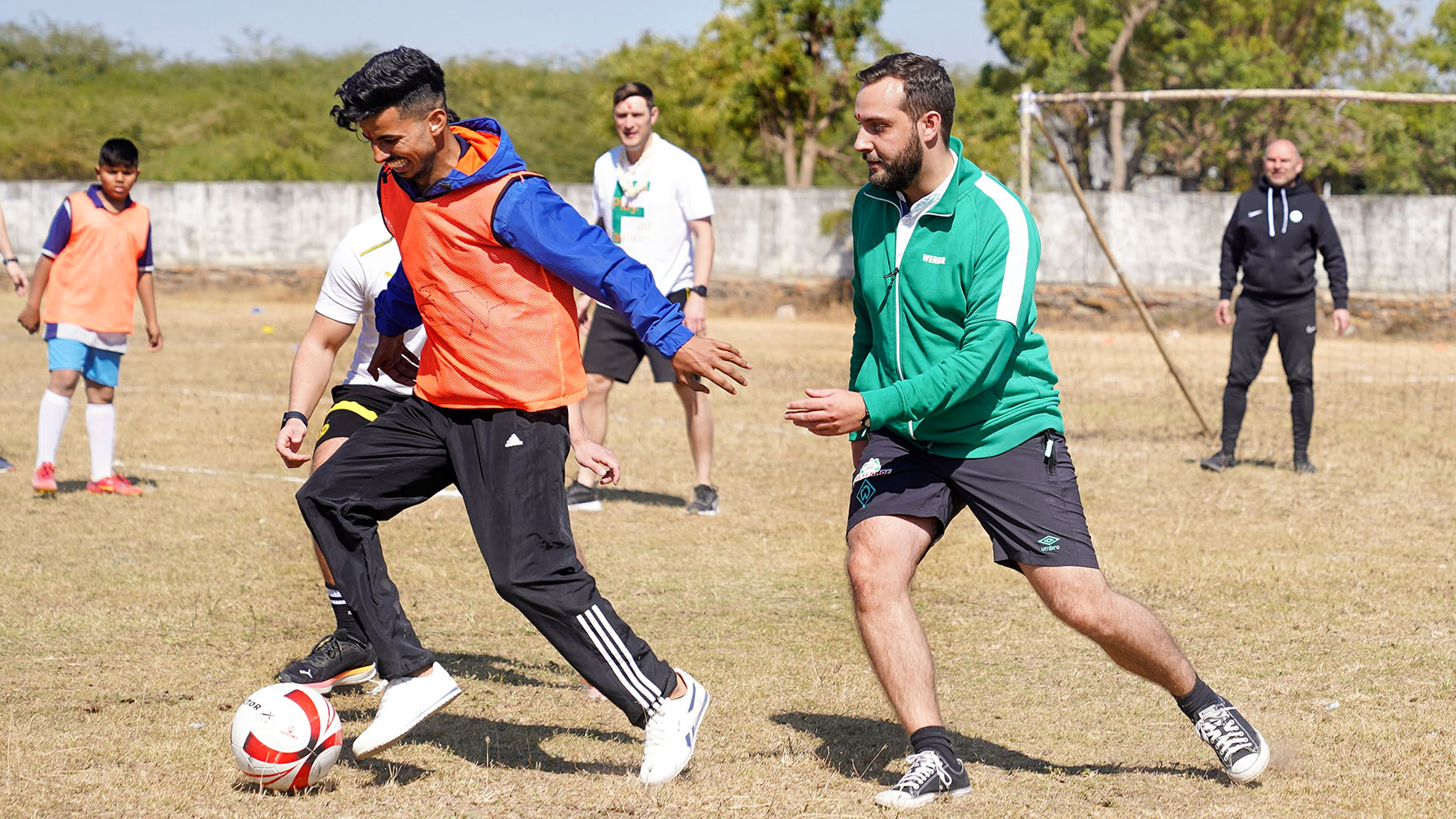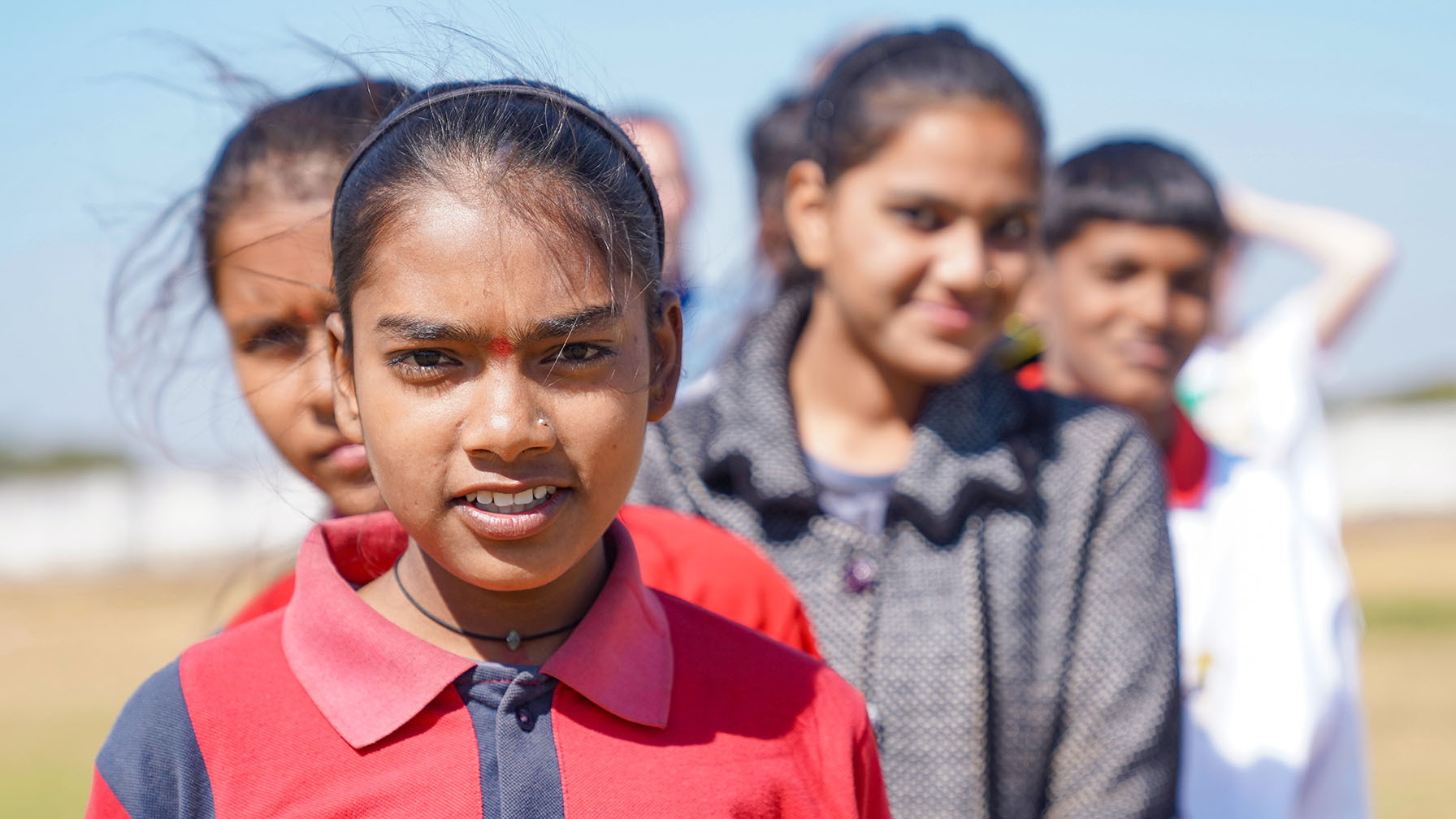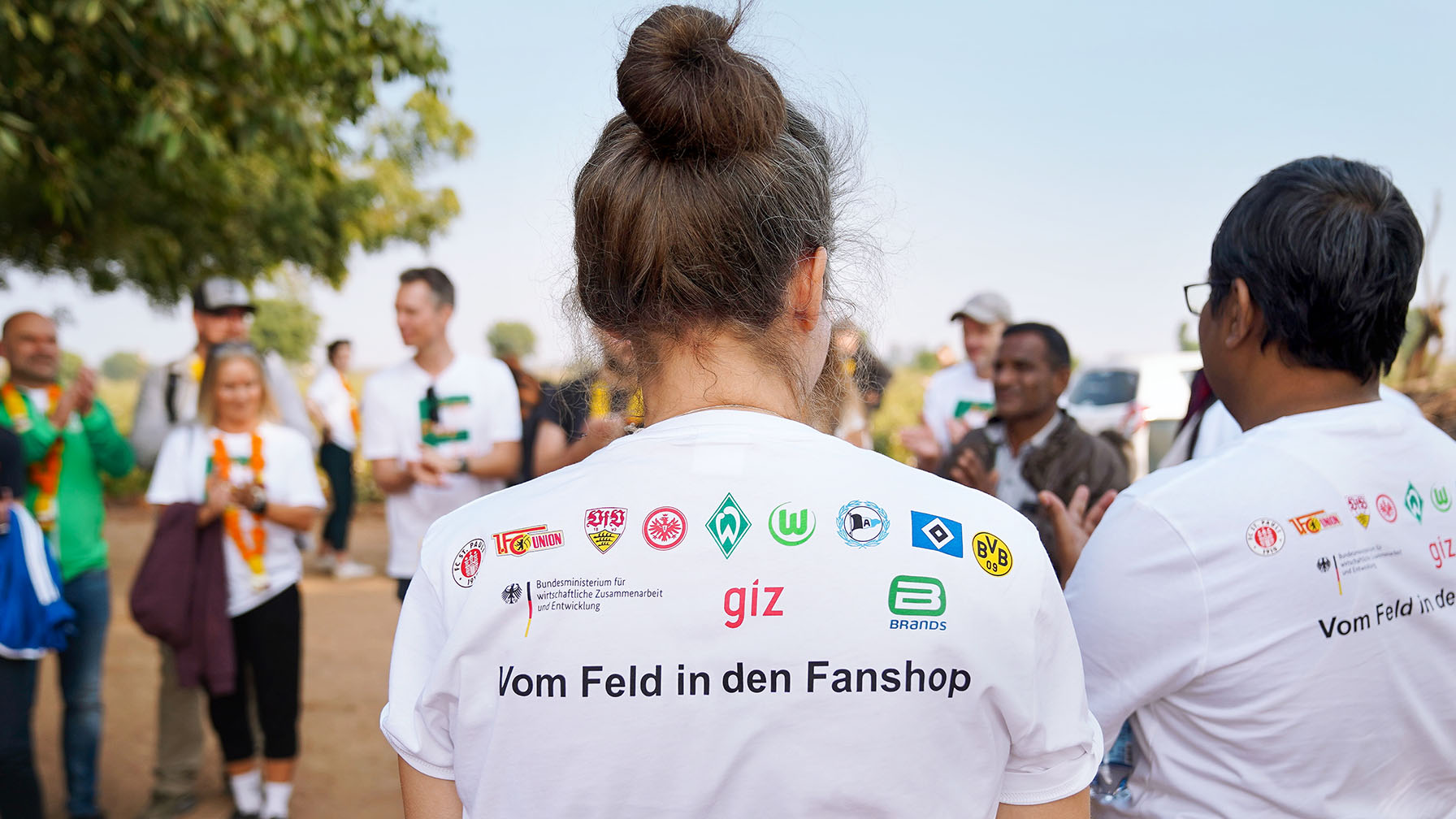From Field to Fan Shop is the name of an initiative launched by the German Federal Ministry for Economic Cooperation and Development (BMZ). The project is being implemented by the Deutsche Gesellschaft für Internationale Zusammenarbeit (GIZ) GmbH. It supports farmers in the Indian state of Gujarat in switching to environmentally and socially responsible cotton production by providing training, compensating farmers for loss of harvest and committing to purchasing fixed amounts of cotton for fan merchandise. At the same time, this holistic initiative is supporting the next generation of cotton farmers by offering sports programmes and education opportunities. The sports programmes are run in collaboration with an Indian youth organisation, with two GIZ projects – Sport for Development and Sustainability and Value Added in Agricultural Supply Chains – managing the programmes and providing advice as part of a cooperation arrangement.
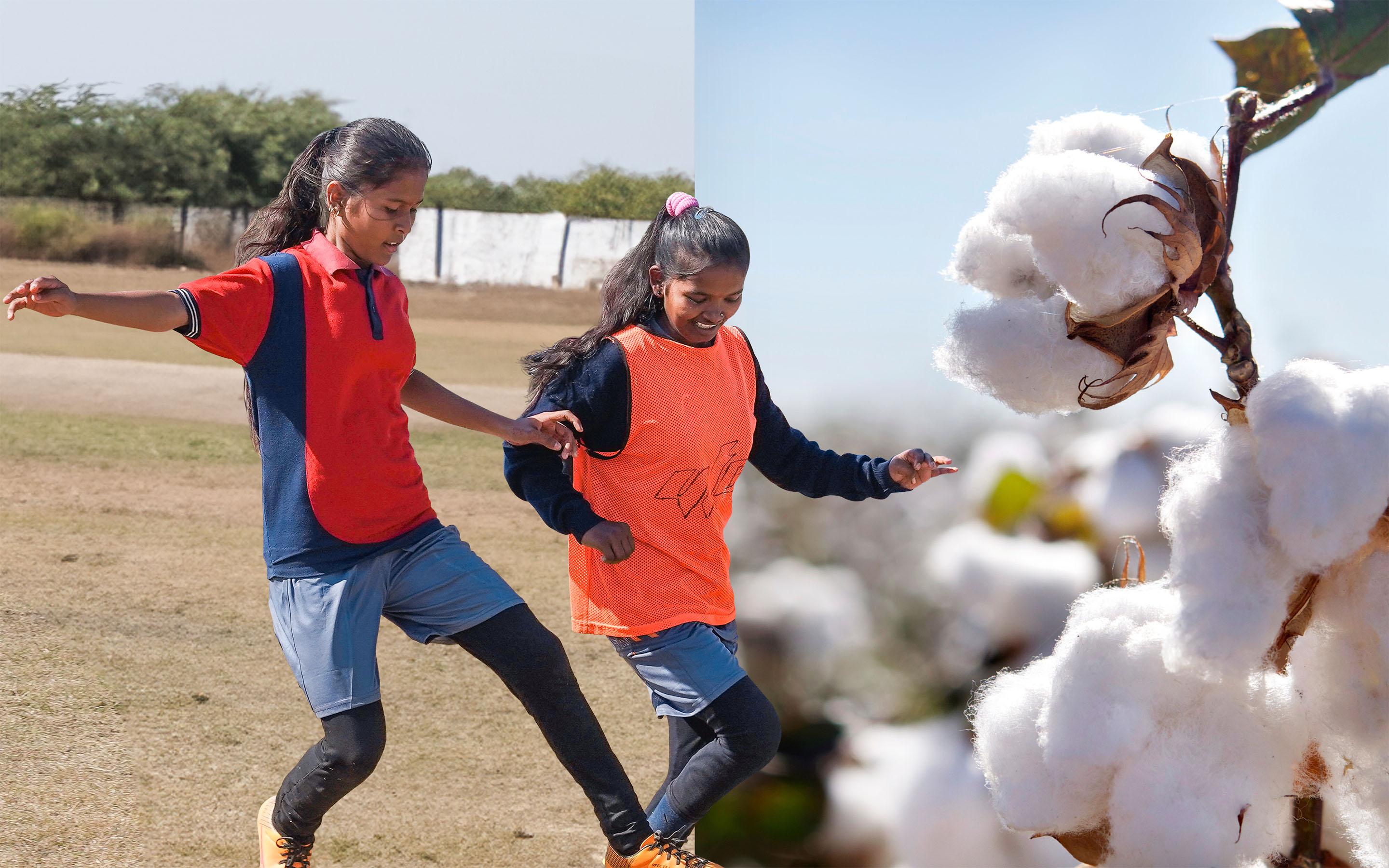 GIZ; BCFC/stock.adobe.com
GIZ; BCFC/stock.adobe.com
The cotton kick
Nine German football clubs, a textile manufacturer, 450 family-run farms in India, Fairtrade and GIZ have teamed up to produce fan merchandise made of sustainable cotton. Views on the From Field to Fan Shop initiative.
- Kanjibhai Gopalbhai Bhojak, farmer
- Manjulaben Narayanbhai Prajapati, farmer
- Mina Vora, representative of the farmers’ cooperative RDFC
- Rabea Schafrick, representative of the textile manufacturer Brands Fashion
- Catharina Fricke, representative of FC St. Pauli
- Sascha Steinbrück, representative of Hamburger SV
Kanjibhai Gopalbhai Bhojak, cotton farmer
We have been working as farmers for many generations. Our family farms its own land – a total of 2.6 hectares of cotton fields. That’s our livelihood. I had reservations about switching to organic farming to start with because of the lower yields.
But then we saw that this change means that our overall costs are lower, mainly because we no longer buy artificial pesticides. The soil also has more nutrients and is not as hard. It can store rainwater much more effectively, which means that I don’t need to irrigate it as much.
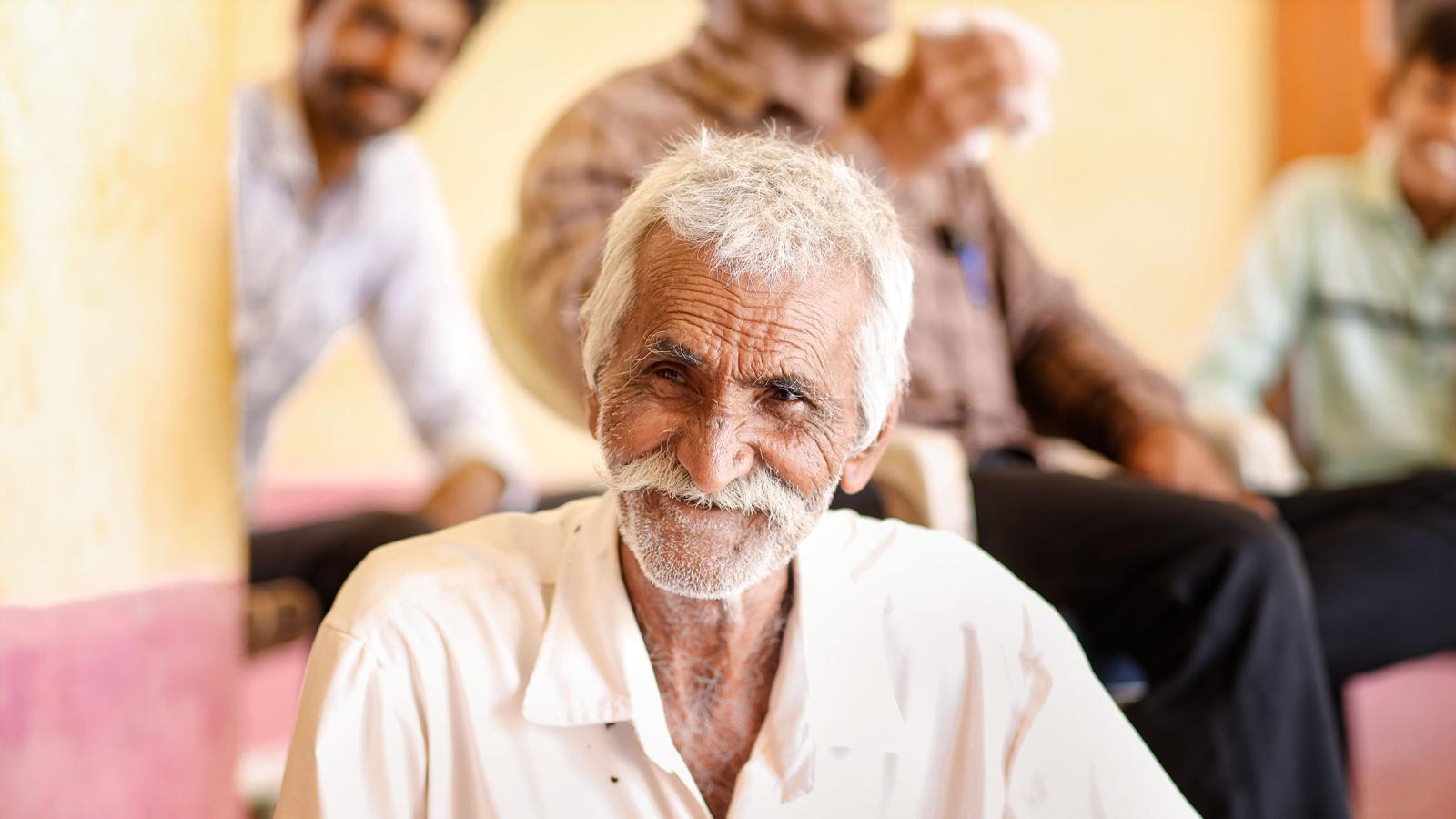 GIZ/Kishan Malabhai Meriya
GIZ/Kishan Malabhai Meriya
Cotton production is not the only area where we have seen positive impacts. The quality of the food we eat is much better too. We know this because we plant vegetables in our fields for our own consumption.
Either my son or I have taken part in all the training sessions offered by the From Field to Fan Shop project, which means that someone in the family always got the important information. My wife Jamnaben is also involved. She took part in training sessions on catch crops and border crops and now knows all about the soil nutrient levels and soil quality required to meet organic standards.
I’m really very satisfied and am now convinced that it was a good idea to switch to organic farming, which is why I would like to continue and to ensure that even more people receive training. It’s not enough for just a few people to farm their land sustainably. The transition needs to happen on a broad scale to secure positive results.
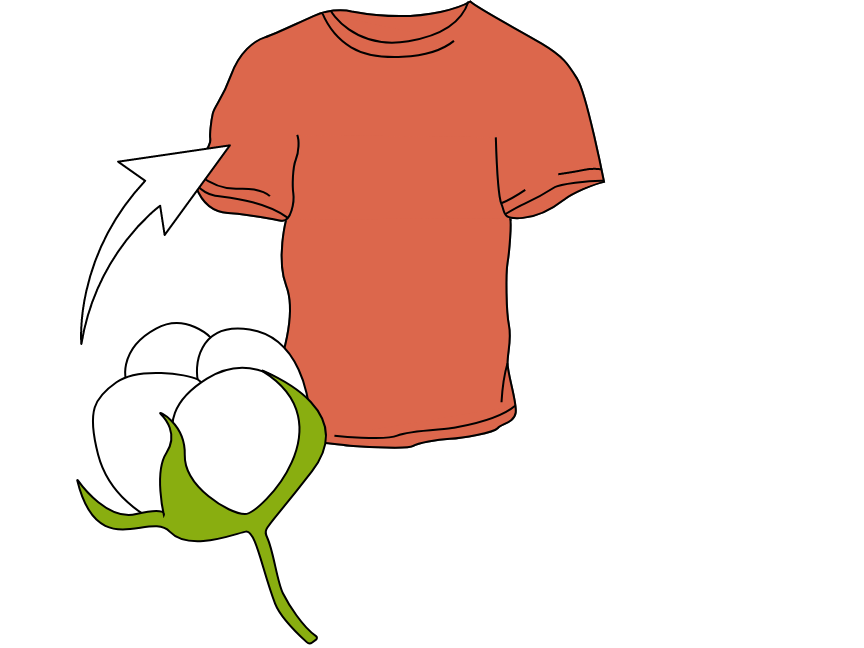
Manjulaben Narayanbhai Prajapati, cotton farmer
Cotton is our life. We are farmers, just like our ancestors were. My husband Jaisangbhai and I work together: we sow, irrigate, weed and pick cotton. The only thing I do not do is operate a tractor. We have switched to organic farming.
We already knew beforehand that it is important to conserve our natural resources, but the training sessions taught us how to make organic fertilisers ourselves instead of using chemical ones, for example. We now use the resources that nature provides. Dashparni Ark is an organic insecticide containing various leaves, ginger and turmeric, for example.
Our life is not easy. There are lots of challenges in farming that are beyond our control, such as the weather or animals that eat the plants. But the new way of farming means that we can save money; the methods are standardised and make sense. We want to continue producing sustainable cotton.
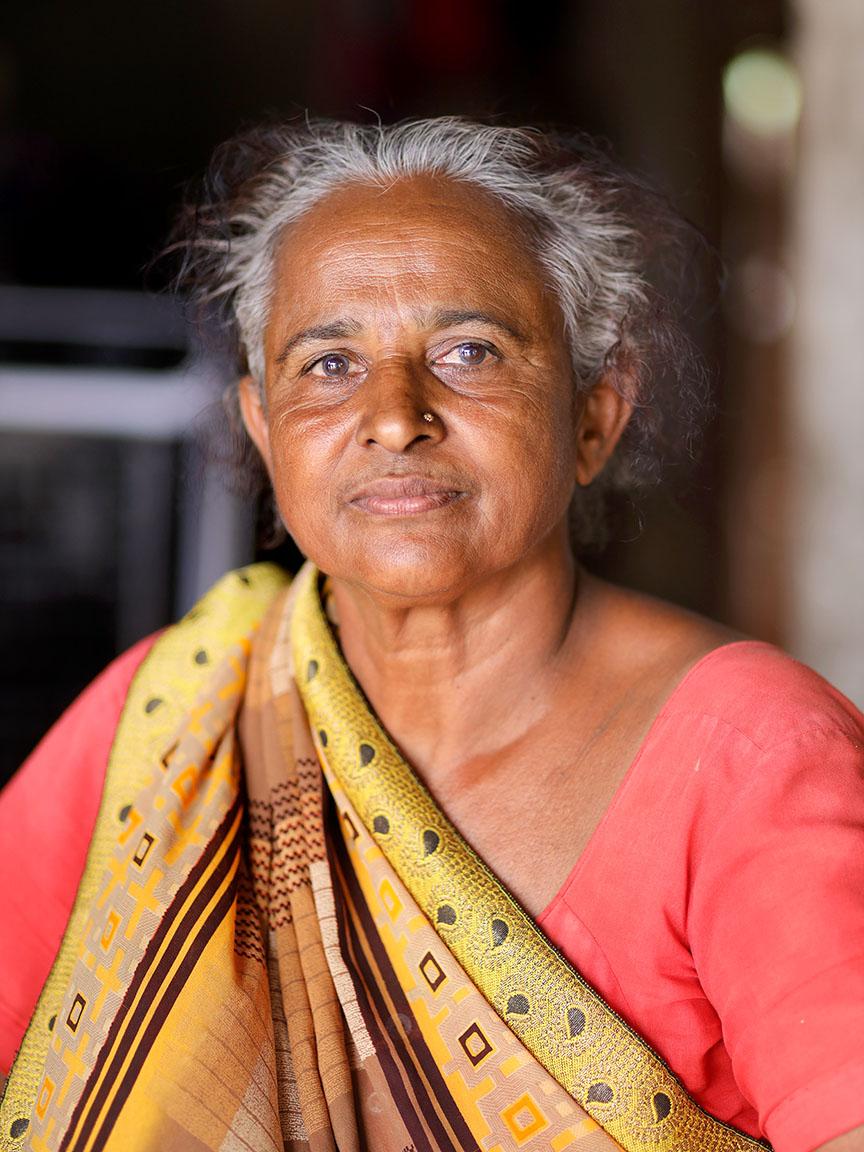 GIZ/Kishan Malabhai Meriya
GIZ/Kishan Malabhai Meriya
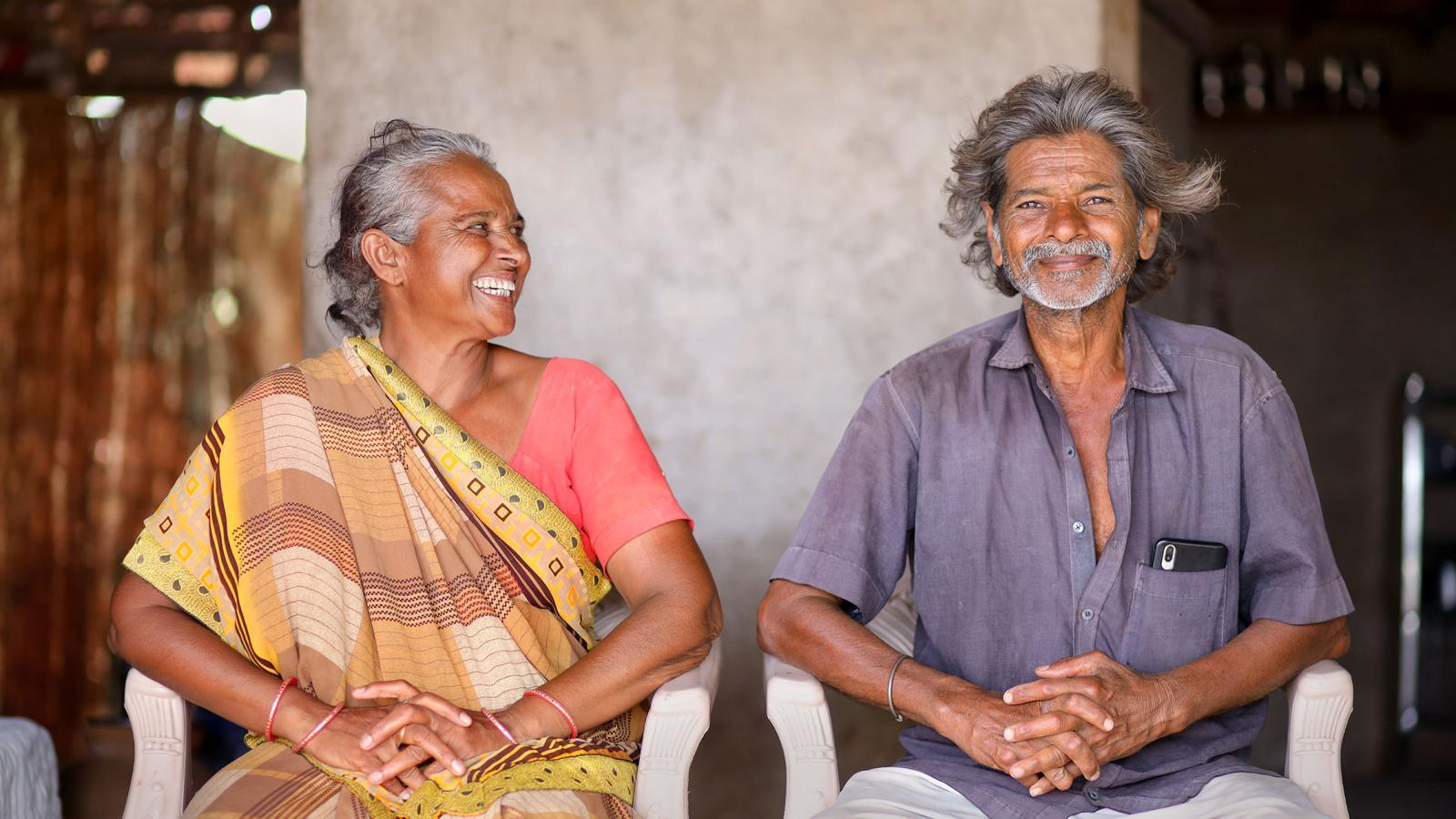 GIZ/Kishan Malabhai Meriya
GIZ/Kishan Malabhai Meriya
In-conversion cotton
There can be no organic cotton without ‘in-conversion cotton’, in other words cotton that is grown in line with organic standards, but has not yet been certified. It can take up to three years for soil to regenerate after the use of chemicals in conventional fields. During this transition period, farmers may have yields that are up to 40 per cent lower, and without a certificate they cannot yet charge the higher prices for organic cotton. On the road to more sustainable production methods, farmers receive support in the form of purchase guarantees for ‘in-conversion cotton’ and compensation for loss of harvest.
Mina Vora, representative of the local farmers’ cooperative
Our cooperative, Rapar & Dhrangadhra Farmers Producer Company (RDFC), supports farmers involved in the From Field to Fan Shop initiative, from sowing seeds to selling cotton.
Switching to organic production starts with high-quality seed that has not been genetically modified. That is why we distribute seed so that we can guarantee compliance with the environmental standards. Purchase guarantees for ‘in-conversion cotton’ are important in order to persuade even more farmers to switch to organic farming.
Our efforts are bearing fruit: we have seen that our training is motivating more cotton farmers to cultivate their fields using natural methods. I encourage everyone to continue in this direction. But it is important that the farmers continue to receive support even after the end of the first project term in 2025 because switching to organic farming entails a considerable economic risk for low-income farmers.
For some, yields are still lower even after the three-year transition phase, one reason being that the farmers are dependent on external conditions such as the amount of water available.
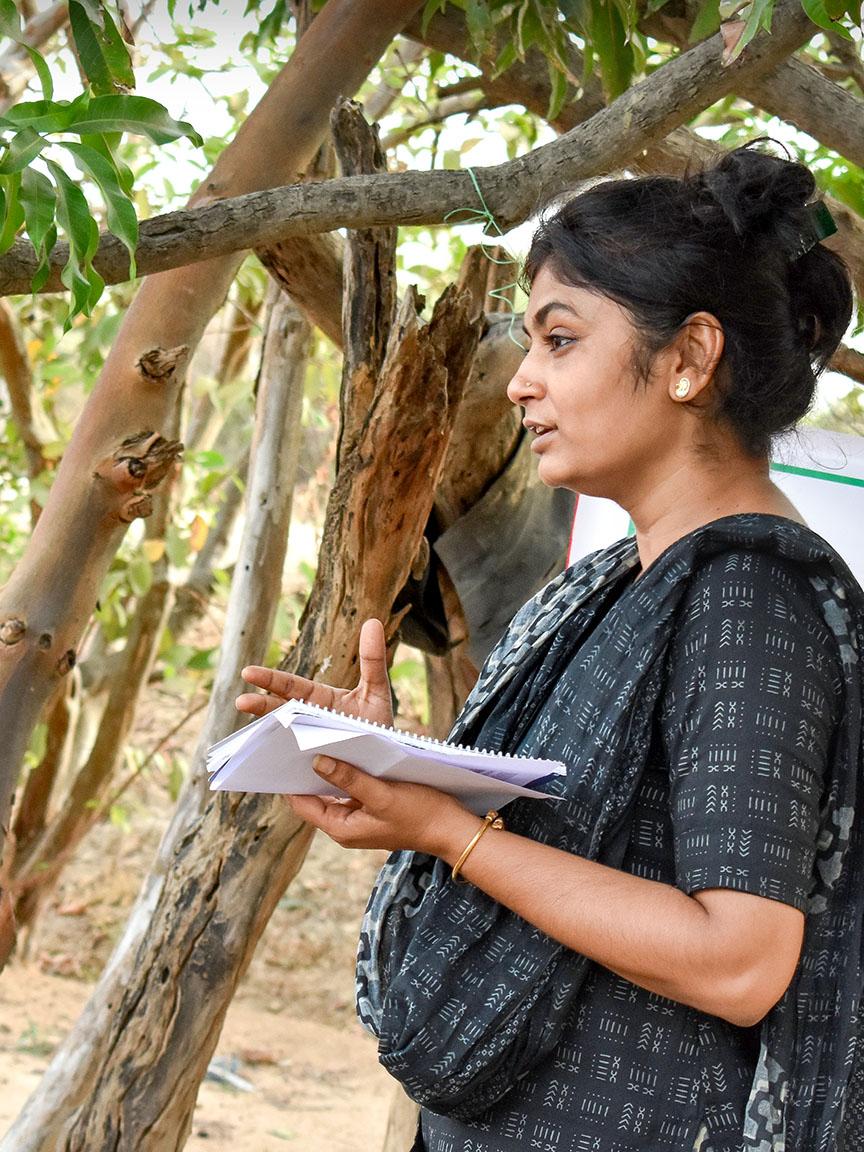 GIZ/Rajasindhura Aravalli
GIZ/Rajasindhura Aravalli
Rabea Schafrick, Head of Sustainability at Brands Fashion
Since late 2023, fan merchandise from the From Field to Fan Shop initiative has been part of the collections of all nine clubs taking part in the project, including the T-shirt with the slogan ‘Die Straße trägt St. Pauli’ (‘The street wears St. Pauli’), the Hamburger SV ‘red trousers’ hoodie (one of the club’s nicknames because of their red shorts) and the ‘Cannstatt History’ T-shirt of VfB Stuttgart, named after the the city borough where the club is based. For us as textile manufacturers, the impetus for the initiative came during the COVID-19 pandemic.
In 2021, suppliers reported that there was no more organic cotton on the market. Less than two per cent of global cotton production is certified as organic. We researched alternatives and came across ‘in-conversion cotton’.
If we want to have more organic cotton on the market, we have to play our part in supporting the smallholder farmers in the Global South as they make the transition from conventional to organic cotton production. The BMZ initiative fits in well here. And many of our long-standing football customers have supported this move too.
This kind of transition requires patience – from everyone involved. From our point of view, we would welcome it if the project were to be continued beyond 2025. We are currently holding talks with the clubs about a second phase of the initiative. Other clubs have now also shown an interest. Fair and sustainable production of fan merchandise goes well with the idea of fairness in football.
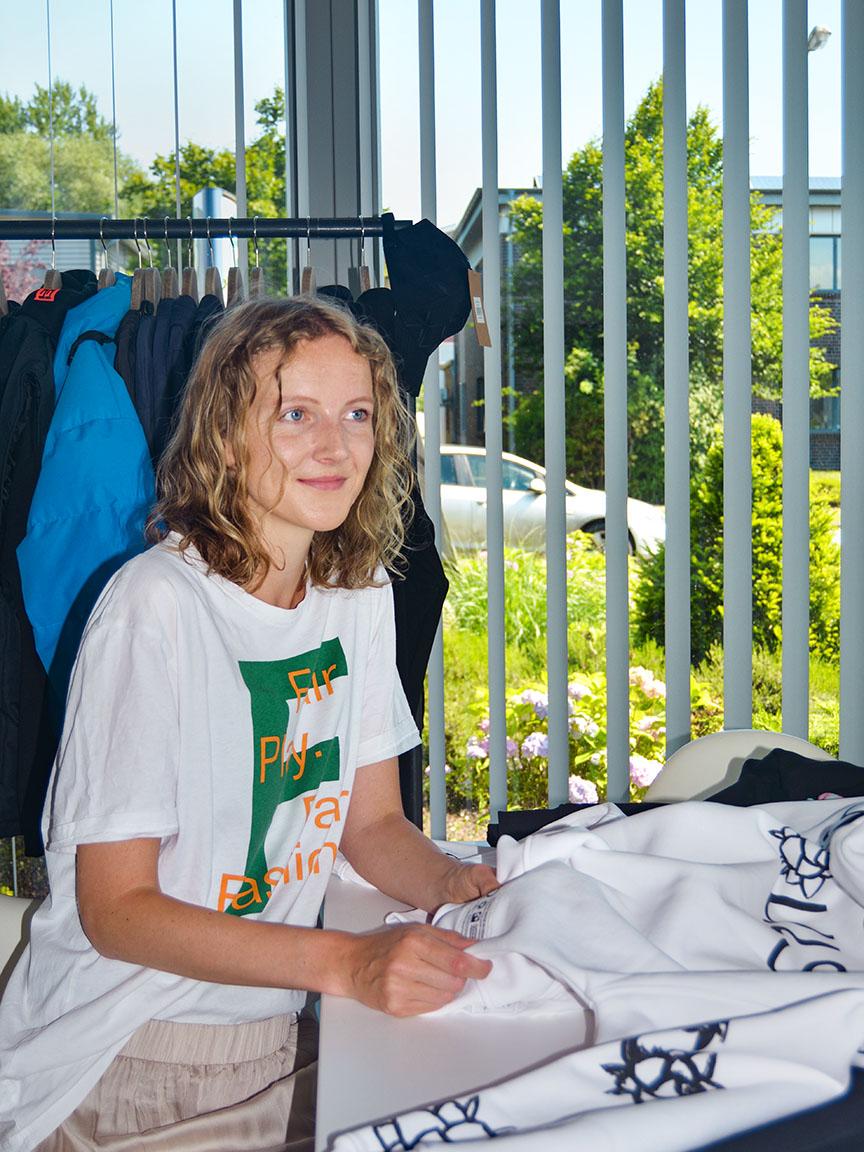 Brands Fashion
Brands Fashion
Catharina Fricke, Head of Merchandising, FC St. Pauli
Sustainable fan merchandising has been an important topic at FC St. Pauli for more than 15 years, and we have been working with Brands Fashion for a very long time now, so it was an easy decision for us to get involved in the From Field to Fan Shop project.
It is important that lots of different clubs team up to support this fantastic project. In terms of merchandising, we’re all ultimately doing the same thing and together we can drive progress, like Hamburger SV and FC St. Pauli are doing.
At the beginning of 2023, we set off together to visit the cotton-growing region of Gujarat to find out more about the everyday conditions there and the processes at the start of the textile supply chain. As football clubs, we have a huge responsibility because we have a very large reach and can use our considerable influence to draw attention to the topic of sustainability.
That is why continuity is so important. It is also what our fans expect. It is important to us that the From Field to Fan Shop project continues and that we take an even closer look at what the people in the cotton-growing regions need.
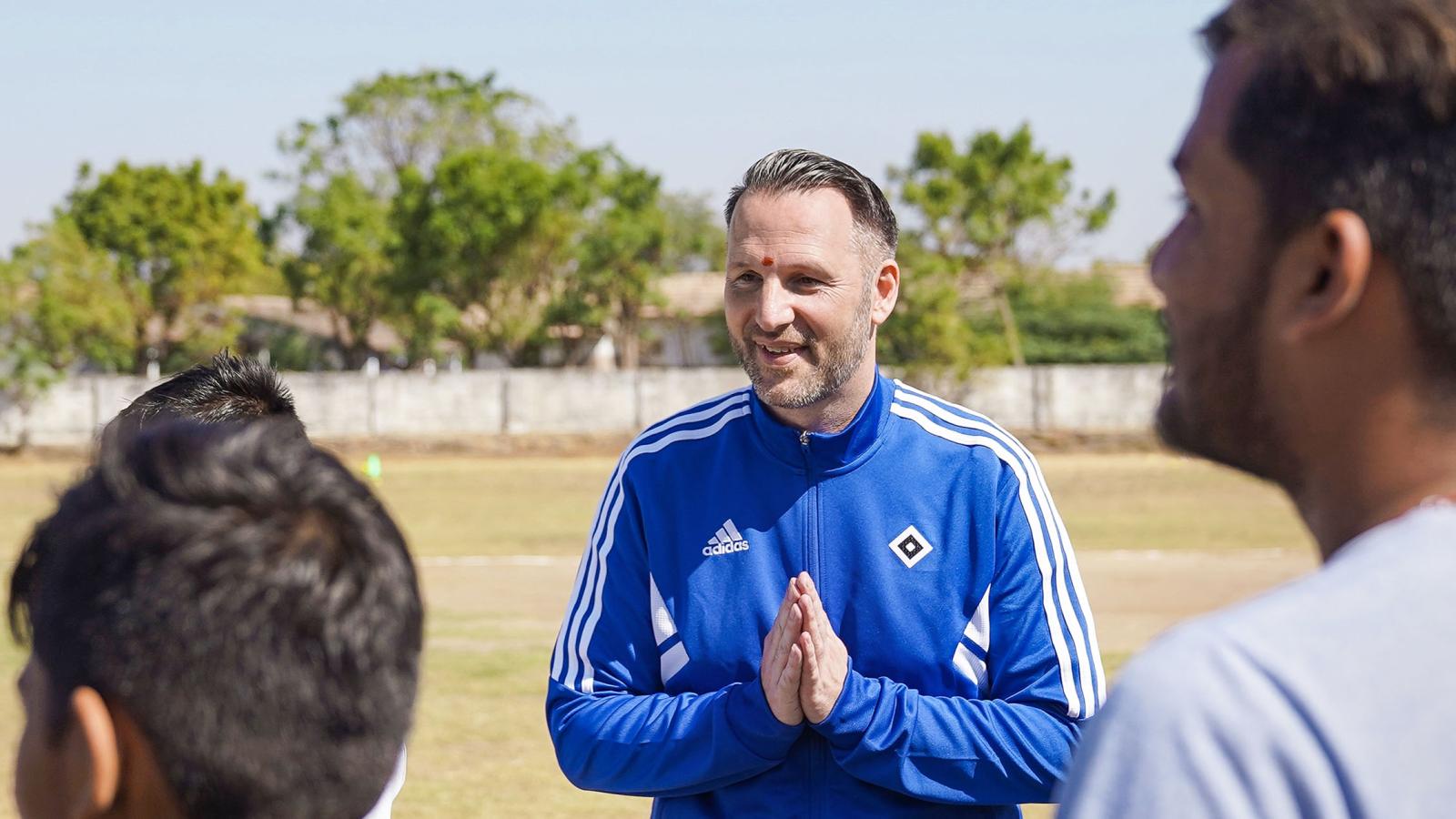 GIZ
GIZ
Sascha Steinbrück, Head of Merchandising, HSV
For us, both pillars of the From Field to Fan Shop project are important: firstly, supporting the smallholder farmers in moving from conventional to organic cotton production and secondly, supporting children and young people in cotton-growing regions by providing opportunities for sports and education.
We need to join forces to implement a comprehensive approach of this kind. It would be impossible without a partner like Brands Fashion, a manufacturer we have been working with in the sustainable textiles sector for some time now.
A Hamburger SV fan wouldn’t wear a T-shirt with St. Pauli’s skull and crossbones logo, and a St. Pauli fan wouldn’t wear a jumper with HSV’s diamond logo.
It is also important for the clubs to pull together, as we are doing with FC St. Pauli. I don’t see any rivalry in merchandising. On the contrary, we have an open dialogue. After all, a Hamburger SV fan wouldn’t wear a T-shirt with St. Pauli’s skull and crossbones logo, and a St. Pauli fan wouldn’t wear a jumper with HSV’s diamond logo.
But together, we can achieve something in the field of sustainability, especially now that the topic is perhaps not such a priority within society. We need to stay on the ball and pursue a strategy. In the colourful world of football in which we operate, the top-flight clubs can play a role here.
Starting line-up
FC Union Berlin, Arminia Bielefeld, Borussia Dortmund, Eintracht Frankfurt, FC St. Pauli, Hamburger SV, SV Werder Bremen, VfB Stuttgart and VfL Wolfsburg
Brands Fashion, GIZ, Fairtrade
